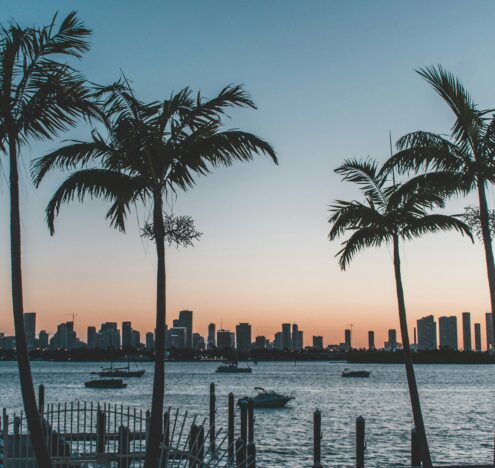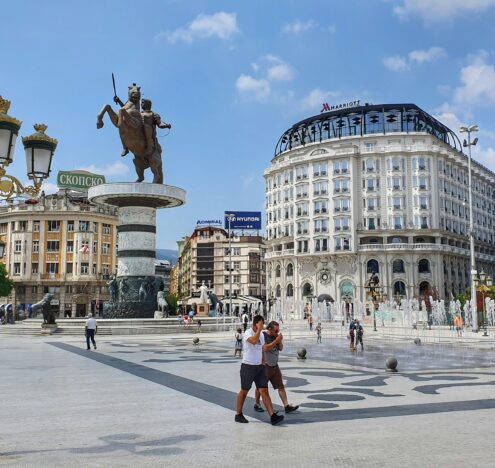This analysis was featured in Critical State, a weekly newsletter from Inkstick Media and The World. Subscribe here.
One of the most difficult parts of a statebuilding enterprise to conceptualize is the idea of legitimacy. Actually becoming a state is pretty straightforward. Do other states recognize you as a state? Congratulations, you’re in the club of states, available to receive hugs (that is, offers of international trade). Whether your state institutions are legitimate in the eyes of your putative citizens, however, is more difficult to track. If people pay taxes, are they doing it because they are invested in the project of the state, or just because they fear the coercive consequences if they do not? If people seek alternative dispute resolution systems rather than using government courts, is that due to lack of confidence in the court system or simply the presence of a strong alternative for certain types of cases? These kinds of questions are crucial both for rulers trying to gauge the strength of their governments and for citizens trying to make decisions about which forms of governance they will utilize in their lives. To that end, this week and next on Deep Dive we’ll look at new research on measures of government legitimacy and what it means to gain and lose legitimacy.
Most legitimacy discourse is, directly or indirectly, about civil war. Rulers fear a loss of legitimacy primarily because such losses can lead to rebellions. Conversely, rebels seek legitimacy as a source of both martial support and acceptance of their capacity to govern. The assumption backing that discourse is often that questions of legitimacy grow in salience up until the height of a civil war, and then fade as the war is resolved. A new article in the journal Comparative Political Studies by political scientists Philip Martin, Giulia Piccolino, and Jeremy Speight upends that sequencing by investigating what happens to government legitimacy after the civil war ends.
Rulers fear a loss of legitimacy primarily because such losses can lead to rebellions. Conversely, rebels seek legitimacy as a source of both martial support and acceptance of their capacity to govern.
Martin et al. focus on Côte d’Ivoire, which fought two civil wars between 2002 and 2011. During the war, large swaths of the country were governed by rebel forces known as the Forces Nouvelles (FN). There were a number of political shifts over the course of the years of conflict, but in the end, leaders associated with the FN won the second war and took over the national government. On paper, it seems like people who embraced FN governance during the conflict would be enthusiastic about this outcome — state institutions transitioning into the control of the people they built relationships with during the war. Yet when Martin et al. conducted a survey in Côte d’Ivoire in 2018, they found that people who had lived in rebel-held areas had significantly more negative views of state institutions and civic obligations — and more positive views of extra-legal anti-state action — than those who had lived in government-held areas during the wars.
One way to explain this counterintuitive finding would be to say that ethnic politics, rather than geographic politics, best explains the Ivorian system and that surely co-ethnics of the pro-FN government in formerly FN-held areas support the government. It turns out, though, that when you disaggregate the data by ethnicity, results are fairly similar across ethnic groups. Indeed, the most significant point of ethnic difference is that Mande respondents — an ethnic group largely supportive of the FN — are actually substantially more supportive of extra-legal anti-state action than members of other ethnic groups. That is, disaggregating the data by ethnicity only makes the original finding more compelling. Similarly, variations in poverty levels, religion and gender do not account for the differences found in views of state legitimacy.
Instead, Martin et al. suggest alternative theories for why respect for government fell in FN-controlled areas. One in particular will be familiar to students of civil wars: Unmet expectations. People interviewed by the researchers expressed disappointment about the gap between what they expected the government to be able to deliver to them after an FN victory and what has actually been accomplished. Postwar reconstruction in FN-held areas has been limited, especially compared to the soaring fortunes of FN-associated leaders who have taken over the national government. Only 31% 0f respondents from FN-held areas said that they felt their local economy had improved since 2011.
Such disappointment is certainly enough to reduce belief in state institutions, but it does less to explain support for extra-legal anti-state actions. That, Martin et al. argue, is the result of the ways communities under rebel control during the war expanded their definitions of legitimacy and governance. Once you live under rebel governance, it becomes difficult to return to the idea that the state is the only — or even necessarily the primary — source of governance. Instead, extra-legal systems of dispute resolution and mutual aid become available to fill in governance gaps, whether those gaps come from rebels or the state itself. In their survey, Martin et al. found that people who engaged in collective action — say, joined a local council or volunteered on a community project — while their community was occupied by the FN were both more likely to have continued involvement in collective action after the war and less likely to approve of the government. Even with the war over, wartime experiments in self-governance continue to provide a competitor to state power in northern Côte d’Ivoire.




















